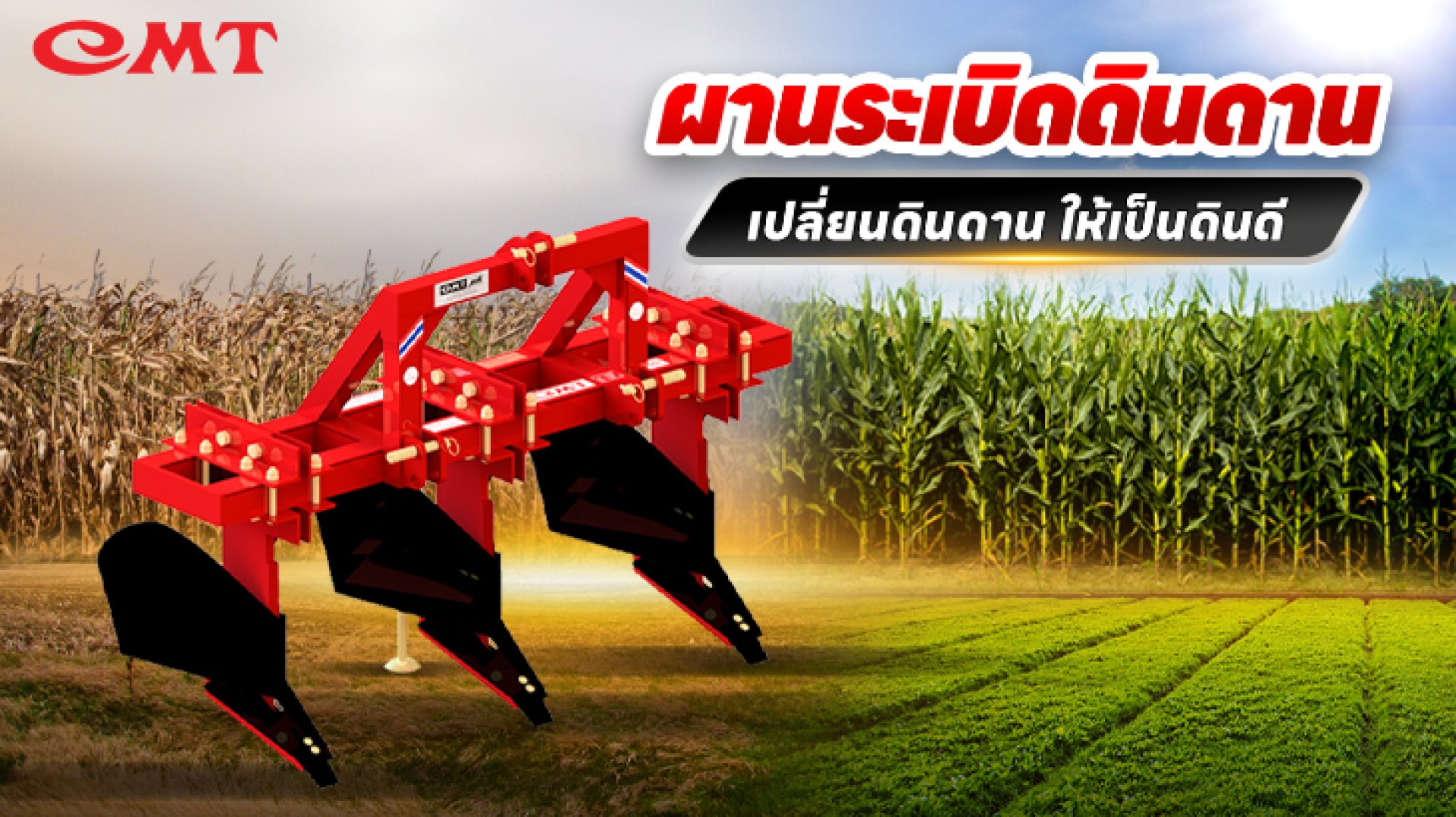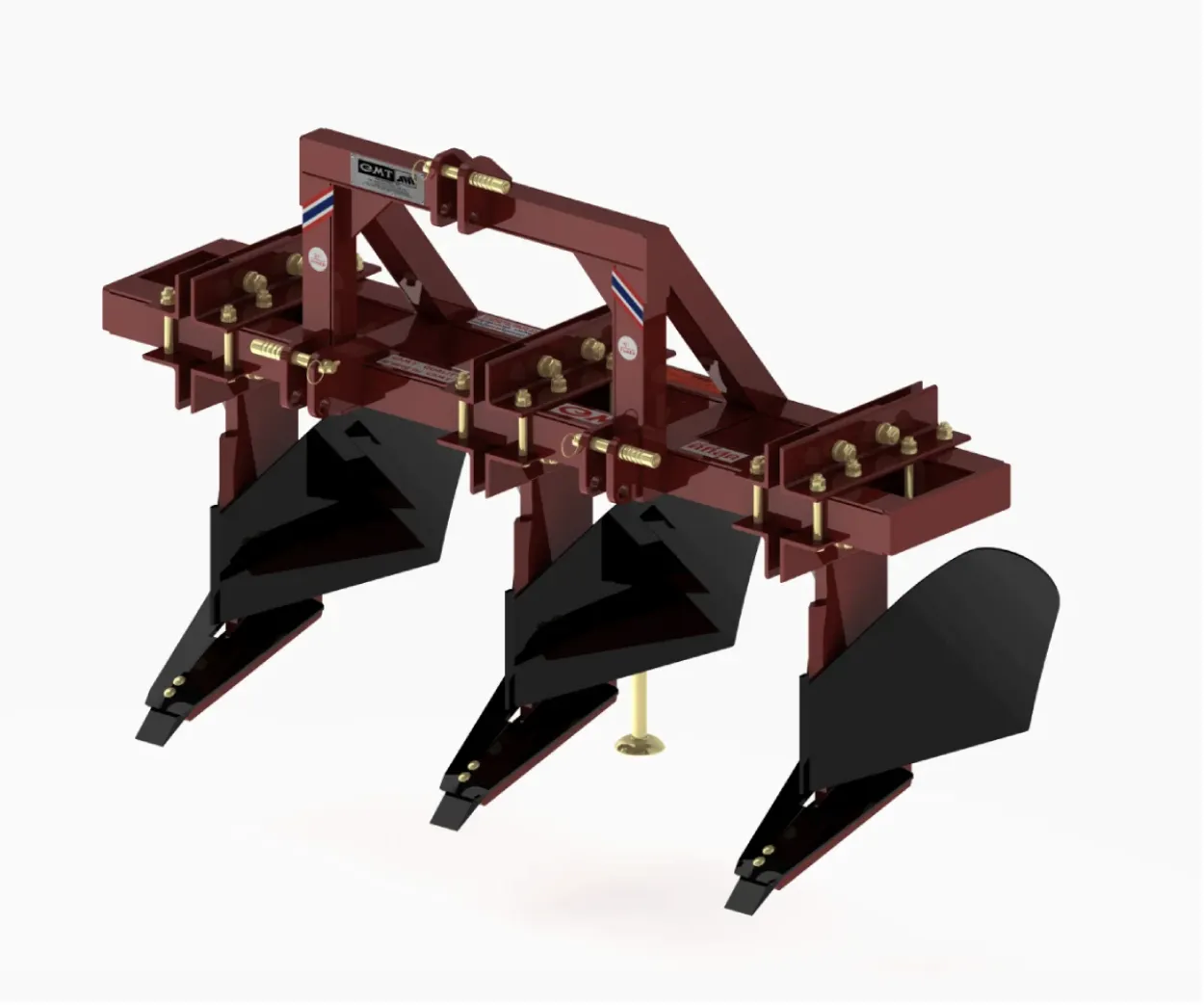Ripper : Transforming Hardpan Soil into Productive Soil

Compacted soil making cultivation difficult? A Ripper can help.
Over time, many farmers notice that their crops grow less vigorously, even though theyve prepared the soil well. This could be due to the lower soil layers, or hardpan, becoming compacted and losing essential nutrients.
Hardpan typically exists in the lower layers of soil, beyond the reach of conventional ploughs and rotary tillers. Thats where a Ripper comes ina tractor attachment specifically designed to break up compacted soil. But before you rush to buy one, lets first explore what causes hardpan soil and how a Ripper can solve the problem.
What is a Ripper and What Does It Do?
A Ripper features tooth-like or fang-like tines that attach to a tractor. It breaks up compacted lower soil layers, allowing plant roots to grow deeper and absorb more nutrients.
Most Ripper have between 2 to 7 tines depending on the field size and desired depth. Many models come with a roller, and some brands even offer dual-function models that can both break hardpan and ridge the soil.
The number of tines also affects the horsepower requirement. For example:
- A 2-tine CMT subsoiler requires 6070 HP
- A 3-tine version needs 7090 HP
What Causes Hardpan Soil?
Even after every harvest, we till the soil in preparation for the next planting season. So why does hardpan still occur? Here's why:
- Continuous shallow tilling compresses the lower soil layers, forming a hard layer beneath the tilled zone.
- Heavy machinery traffic compresses the soil structure, especially during harvest.
- Frequent tractor use applies consistent weight over time, compacting the soil.
In simple terms, the usual tilling depth isn't enough to reach deeper layers, and the weight of farm equipment contributes to the problem.
Why Farmers Should Know About Ripper
For plants to thrive, they need adequate sunlight, water, fertilizers, and nutrients from the soil. Roots play a vital role in absorbing these nutrients. If the soil is too compact, roots can't penetrate and nutrient uptake is reduced, resulting in stunted growth and poor yields.
This is especially critical for field crops like sugarcane, whose roots grow deep. Ripper loosens the compacted layers, allowing better root growth, improved air flow, and water infiltration to maintain soil moisture.
Ripper also benefits soil biodiversity. When lower layers have sufficient moisture and air, beneficial organisms like earthworms can thrive, further enhancing soil health.
How Does a Ripper Work?
The fang-shaped tines of a Ripper dig deep into the soil (about 3040 cm), breaking up compacted layers without turning the topsoil. This process loosens the lower soil, improving air exchange, moisture retention, and nutrient absorption for plant roots.
How a Ripper Prevents Crop Damage from Hardpan
If the compacted layer isnt broken, it can negatively affect crops in several ways:
- Waterlogging: Especially during rainy seasons, water cant drain properly.
- Nutrient loss: Fertilizers can be washed away, harming the topsoil.
- Restricted root growth: Roots cant break through, leading to stunted plants.
- Drought issues: Groundwater can't rise through the hardpan to keep soil moist during dry periods.
To choose the right Ripper for your crops, it's helpful to know the root depth and moisture needs of your specific plants.
How to Use a Ripper Effectively
Simply breaking up the soil isnt enoughyou also need to prevent moisture loss.
After Ripper, follow up by covering the surface with a rotary tiller or disc harrow. This step ensures optimal soil improvement and maintains moisture levels.
Characteristics of a Good Ripper
A well-performing Ripper should:
- Penetrate 2060 cm deep.
- Break compacted soil without excessively turning the top layer.
- Work across different soil types.
- Have tines that don't drag and resist tractor movement.
By now, it's clear that Ripper are essential for modern farming, especially with large-scale crops that require soil rotation and consistent productivity. Besides water and fertilizer, soil nutrients are vital for healthy plant growth.
But compacted soil can stunt growth, making subsoiling an important step in preparing deep soil layers. A Ripper simplifies this task and improves root development and yield.
If you're looking for a durable, efficient Ripper/Furrower, CMT offers high-quality models designed for various soil types and compatible with many tractor sizes.



